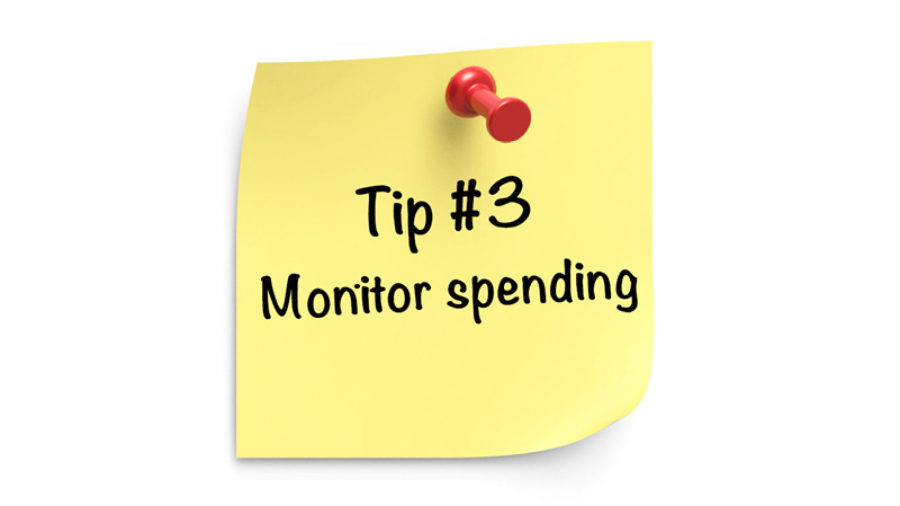6 smart money tips for college-bound students
Most young adults say they’re anxious about money. These financial tips and resources could help you lighten the load.
Editor’s note: This story was updated Dec. 13, 2023.
Young adulthood can be full of milestones: getting your driver’s license, dressing up for prom, or applying to colleges.
Here’s an adulting milestone that some may overlook: opening your first bank account.
“This first account is very important. Many students may not realize you can start establishing credit with a checking account,” said Alicia Paredes Laramy, who leads deposit products strategy for college students and teens at Wells Fargo. “This can also help with your future financial needs, as you graduate or even during school. For example, when you apply to rent an apartment, the landlord may check your credit. Students are going to want to have established credit, and a checking account can help them do that.”
Some teens open their first account only because they have to. They’ve accepted their first job or are preparing to move out to attend college or a trade school. Those paychecks from work and money transfers from parents have to go somewhere.
That first bank account, however, isn’t important simply because it’s often required. It’s a young person’s first step on a lifelong financial journey. And navigating that tenuous transition between high school and adulthood may come with both newfound financial freedom and anxiety about managing your finances for the first time.
“This first account needs to be managed responsibly,” Paredes Laramy said, “just like a credit card.”
These resources and financial tips may help lighten the load.
Find starter accounts that help you budget, save, and invest
Financial institutions are tailoring accounts to serve the specific financial needs — and pressures — of students and young adults who are learning to manage money on their own.
In 2020, Wells Fargo introduced Clear Access Banking℠, a checking account with no overdraft fees1 and a waived monthly service fee for primary account holders ages 13 to 24.2 “Clear Access Banking is a checkless3 account with no overdraft fees, so it’s a really good starter account for a young person, teens especially,” Paredes Laramy said.
While young adults may be new to managing their finances, it hasn’t stopped many from embracing more mature financial decisions like investments. In fact, 73% of college students report wanting to learn more about investing, according to a 2023 Student Monitor survey. “Generation Z has shown far greater interest than previous generations in investing at a younger age. They see it as a way to build wealth,” Paredes Laramy said. “If you can save enough money over time to cover your emergency needs, then you could potentially have extra to start investing, if that’s what you want to do.”
Banks are providing resources to help students hit the ground running with that, too — through products that promote regular saving, such as Wells Fargo’s Way2Save Savings Account. With its similar monthly fee service waiver for young customers, the savings account could help them start investing sooner by helping them avoid fees and commit to consistent saving.
Discover more Student and Teen Bank Account Options at Wells Fargo.
Anxious about money? You’re not alone
It’s important for students and their families to be aware of the costs of college and how the financial and mental pressures of continuing their education may affect them.
Gen Z is more likely than other generations to report money anxiety, with three in four Gen Zers feeling financially stressed, according to a 2022 TIAA survey.
“In planning for and attending a higher education institution, there are so many factors impacting finances, and that taps into the mental health challenges that we’re seeing, especially among Gen Z,” said Peter Averdick, who leads student segment marketing and the CollegeSTEPS® program, Wells Fargo’s student-focused resource hub. “The strong link between mental health and the potential stress related to finances is real.”
If college students and their families have seen their finances significantly change due to job loss, economic factors, or other reasons, there are steps they can take. For example, students can appeal the financial aid award letters that they receive from their schools, which could result in more financial assistance with school.
“It’s not something that a lot of students, parents, or guardians are aware of that can be done,” Averdick said. “Appealing a financial aid award letter with the school’s financial aid office can be particularly helpful when a family’s financial situation has changed from the previous year. These awards are based upon FAFSA expected family contributions, which use the prior year’s financial filings, and may not be reflective of the family’s financial situation today.”
Staying on top of money matters may help students manage financial anxiety. Resources like on-campus counselors and advisors, as well as digital tools like Wells Fargo’s Get College Ready, are available.
6 money tips for college students
Here are six tips to help college students establish good money management habits.
Wells Fargo Bank, N.A. Member FDIC.
1. Other fees may apply, and it is possible for the account to have a negative balance. Please see the Wells Fargo Consumer Account Fee and Information Schedule and Deposit Account Agreement for details.
2. When the primary account owner turns 25 years old, age can no longer be used to avoid the monthly service fee. Customers between 13 and 16 years old must have an adult co‑owner.
3. If you convert from a Wells Fargo account with check writing ability to a Clear Access Banking account, any outstanding check(s) presented on the new Clear Access Banking account on or after the date of conversion will be returned unpaid. The payee may charge additional fees when the check is returned. Make sure that any outstanding checks have been paid and/or you have made different arrangements with the payee(s) for the checks you have written before converting to the Clear Access Banking account.













